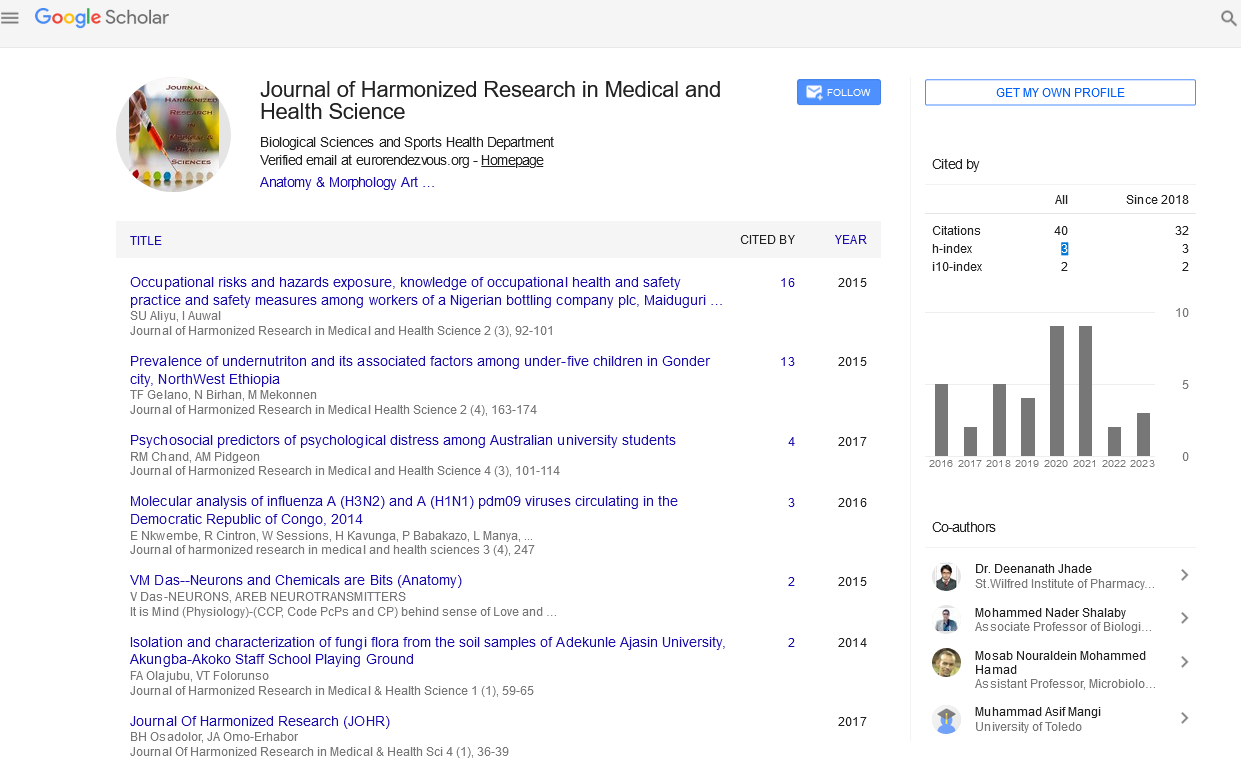MOLECULAR CHARACTERIZATION OF MYCOBACTERIUM TUBERCULOSIS COMPLEX STRAINS IN KINSHASA, DR CONGO
Abstract
Author(s): Hugo Kavunga, Justin Masumu, Michel Kaswa, Muriel Aloni, L├â┬ęontine Nkuku, Dieudonn├â┬ę Mumba, Georges Tshilenge, Van der Auwera Gert, Jean Jacques Muyembe.
Tuberculosis (TB) is an infectious and communicable granulomatous disease caused by the acid fast bacilli bacteria of the genus Mycobacterium. The disease is mainly spread through inhalation of infec ted droplets expelled from infected lungs. Transmission, pathogenicity, geographical spread and host ranges differ among the Mycobacterium tuberculosis complex (MTBC) subspecies. We typed Mycobacterium spp. from pulmonary secretion samples collected from suspected TB patients, selected in different health centres in Kinshasa, the capital city of DR Congo, where TB is highly endemic. Analysis was conducted using Ziehl-Neelsen, Genotype« MTBDR plus and PCR techniques. The results showed that out of 155 samples collected from suspected TB patients, 95 (61.2%) were positive using the bacteriological Ziehl-Neelsen test. Among these 95 positive samples, the Genotype« MTBDR plus test (Hain« test) characterized 93 samples (97.9%) as belonging to the MTBC. The remaining two samples (2.1%) that could not be amplified were classified as Mycobacteria other than tuberculosis (MOTT). These 93 Genotype« MTBDR plus positive samples were further characterized using the PCR technique based on genomic Regions of Difference whereby 74 samples (79.5%) were classified as Mycobacterium tuberculosis, 16 (17.2%) as M. africanum, 1 (1%) as M. bovis and the remaining 2 samples could not be classified. This study reveals the co-circulation of various MTB species in the human population of Kinshasa where most TB patients are infected with M. tuberculosis or M. africanum. However the presence of the zoonotic M. bovis in the human population highlights the possible existence of the animal-human transmission. Key words: Mycobacterium tuberculosis complex strains, Regions of Difference, Ziehl-Neelsen, Genotype« MTBDR plus, Kinshasa










